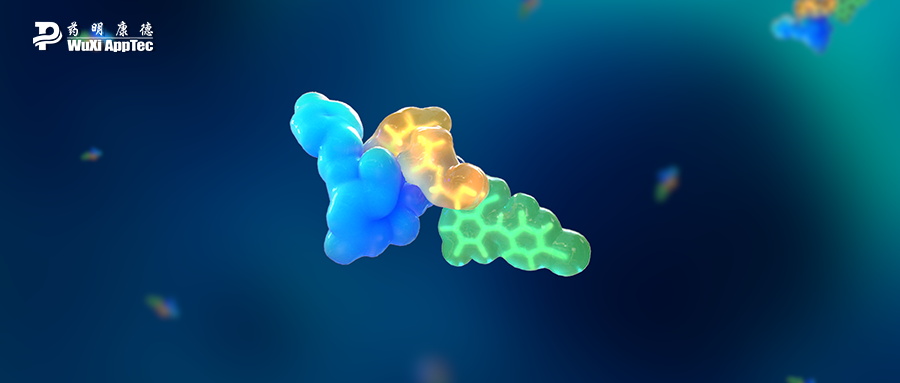Peptide-Drug
Conjugate Services
Peptide-drug conjugates (PDCs) are a promising class of therapeutic compounds that have garnered significant interest for their potential in treating cancer, infectious diseases, and metabolic disorders by enhancing targeted drug delivery and efficacy. Our PDC testing services support development from discovery to IND application to NDA submission, advancing your novel candidate further, faster.
Peptide-Drug Conjugate Solutions by WuXi AppTec Lab Testing Division
IND-Enabling Packages
In Vitro Studies
In Vivo Studies
Comprehensive Preclinical
Testing for PDCs
Peptide-drug conjugates (PDCs) combine peptides with drug molecules, necessitating specialized preclinical testing due to their complex structures. With expertise in DMPK/ADME, bioanalysis, safety assessment, CMC, pharmacology, and regulatory affairs, we offer comprehensive support for every stage of PDC development – all under one roof.
DMPK
Utilize a worldwide network of testing facilities for PDC DMPK research, emphasizing stability, permeation, metabolic stability, delivery systems, and tissue distribution studies.
Bioanalysis
We develop and validate comprehensive analytical methods designed for the unique properties of PDCs, along the way ensuring high specificity and sensitivity.
Safety Assessment
Our comprehensive safety assessment services are customized to the unique features of PDCs, evaluating immunogenicity, off-target effects, administration routes, dose dependency, and more.
CMC
We assist with your CMC documentation requirements in both the US and China, covering the entire lifecycle from preclinical stages to commercial management for both drug substance and product.
Pharmacology
Get validated discovery assays, featuring both in vitro tests and in vivo disease models for cardiovascular, CNS, respiratory, metabolic, and infectious diseases.
Regulatory Affairs
Streamline global filings to be convenient, efficient, and cost-effective across the US FDA, NMPA, and EMA with our comprehensive regulatory submission support.
End-to-End Preclinical Services
WuXi AppTec provides a complete testing platform for PDCs, covering everything from early screening to IND submission and beyond. With a skilled research team and advanced instruments, we offer extensive PDC study and analysis capabilities, ensuring high-quality in vivo and in vitro data.


Custom Study Strategies
Our team excels at creating tailored study strategies for PDC candidates, which tend to be highly complex. By proactively identifying potential safety issues early on, we help drug developers make informed decisions about advancing PDCs to clinical trials.
Global Partner & Network
WuXi AppTec is a true global provider in preclinical small and large molecule solutions, with state-of-the-art facilities and experts across US, Europe and China. We have decades of experience operating within diverse regulatory environments and delivering tailored testing solutions that advance ADCs from preclinical through IND, NDA and beyond.

Frequently Asked Questions
What are peptide drug conjugates (PDCs) and why are they important?
Peptide drug conjugates are therapeutic compounds that combine peptides with drug molecules, enhancing targeted delivery and efficacy. They are important for treating diseases like cancer, infectious diseases, and metabolic disorders.
Why is preclinical testing essential for PDCs?
Preclinical testing is crucial for evaluating the safety, efficacy, stability, and bioavailability of PDCs before they enter clinical trials. It ensures that PDCs are effective and safe for human use.
What types of preclinical studies are conducted for PDCs?
Preclinical studies for PDCs include in vitro assays, in vivo animal studies, pharmacokinetics (PK), pharmacodynamics (PD), toxicology assessments, and stability testing.
How do in vitro studies contribute to the development of PDCs?
In vitro studies evaluate the binding, activity, and cytotoxicity of PDCs against target cells, providing initial data on their therapeutic potential and mechanism of action.
What is the role of in vivo animal studies in preclinical testing of PDCs?
In vivo animal studies assess the efficacy, safety, and biodistribution of PDCs in living organisms, providing critical data on their therapeutic effects and potential side effects.
Why are pharmacokinetics (PK) and pharmacodynamics (PD) important in preclinical testing of PDCs?
PK studies evaluate how PDCs are absorbed, distributed, metabolized, and excreted in the body, while PD studies assess their biological effects. Together, they provide a comprehensive understanding of the drug’s behavior and efficacy.
How is the stability of PDCs assessed during preclinical testing?
Stability testing evaluates how PDCs maintain their integrity, potency, and efficacy under various conditions, ensuring they remain effective throughout their shelf life and during administration.
What toxicology assessments are necessary for PDCs in preclinical testing?
Toxicology assessments identify potential adverse effects of PDCs on biological systems, determining safe dosage ranges and mitigating risks for clinical trials.
What regulatory guidelines must preclinical testing for PDCs follow?
Preclinical testing for PDCs must adhere to guidelines set by regulatory agencies such as the FDA (Food and Drug Administration) and EMA (European Medicines Agency), ensuring safety and efficacy before clinical trials.
What are the key challenges in preclinical testing of PDCs?
Key challenges include ensuring targeted delivery, minimizing off-target effects, achieving optimal pharmacokinetics, and demonstrating consistent stability and efficacy across different models.
Let’s Talk About Your PDC Program
Have questions? Need specific assays? Talk to an expert today about your needs.